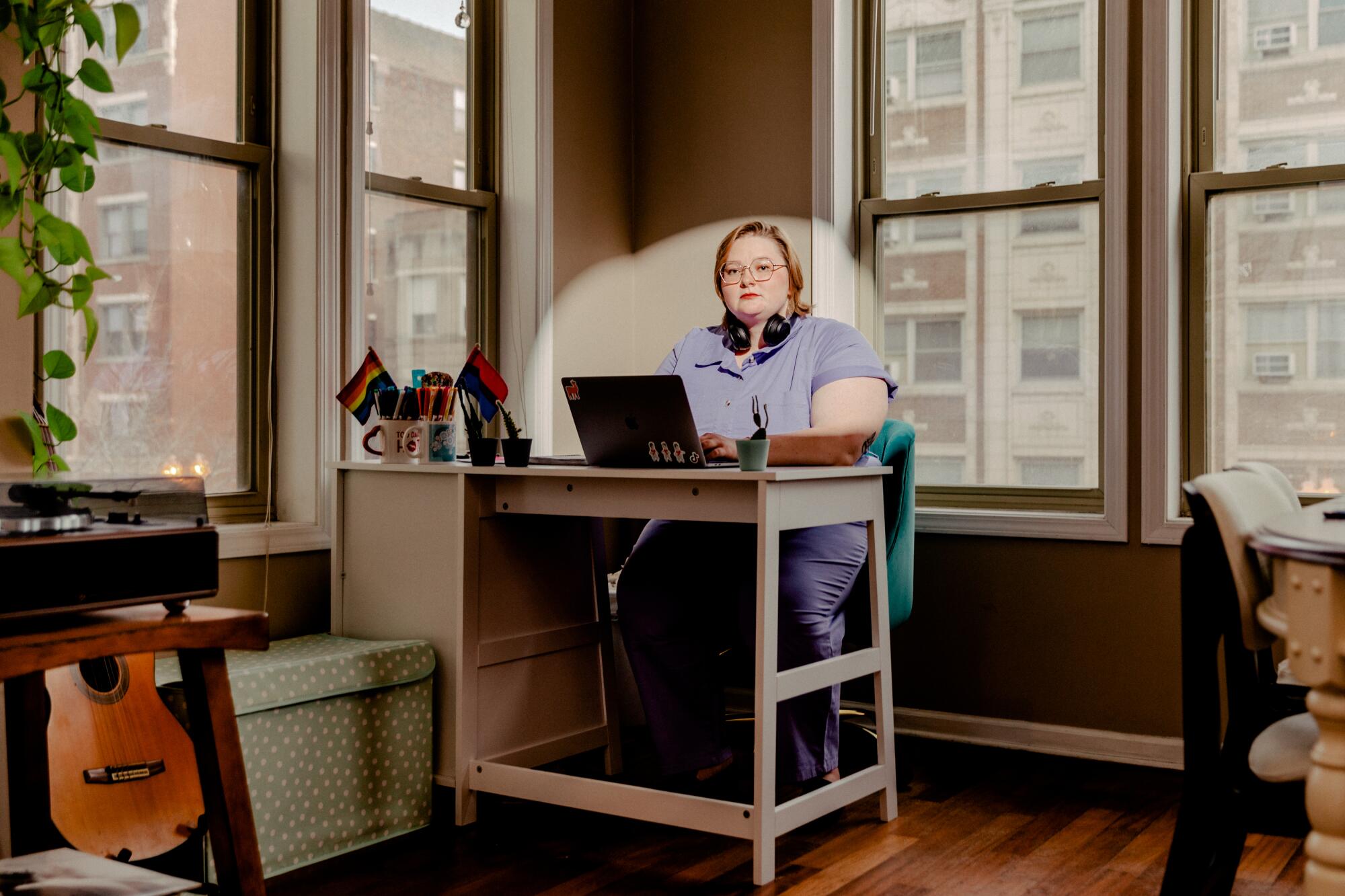
The impact of COVID-19 on the American theater industry is immeasurable: the terrible loss of life, the indefinite cancellation of productions, the sudden stop in hard-earned livelihoods. The industry touted it as an intermission of sorts and, two years later, a majority of theaters nationwide are resuming in-person programming. But many of those who sustain the scene have since pivoted away from the stage.
“There’s the risk that we’re losing a generation of people and their unique skill sets, which is necessary for this sector of the industry to function,” says Carson Elrod, co-founder of Arts Workers United. “The theater is not a cause or a charity or sort of feel-good peripheral thing. We’re an integral, dynamic cornerstone to economies all over this country; we’re one of the nation’s biggest exports. And if we’re not doing what we do because we end up doing other jobs, the greater American economy will suffer.”
For numerous artists and arts workers, the collective pause since 2020 spurred an unprecedented reflection on what they weren’t getting from their prepandemic jobs and what precarious elements they had long tolerated for the love of the art form. Some are leaving the door open to return to theater someday. Others say they’ll never go back. Here are 10 of their stories.
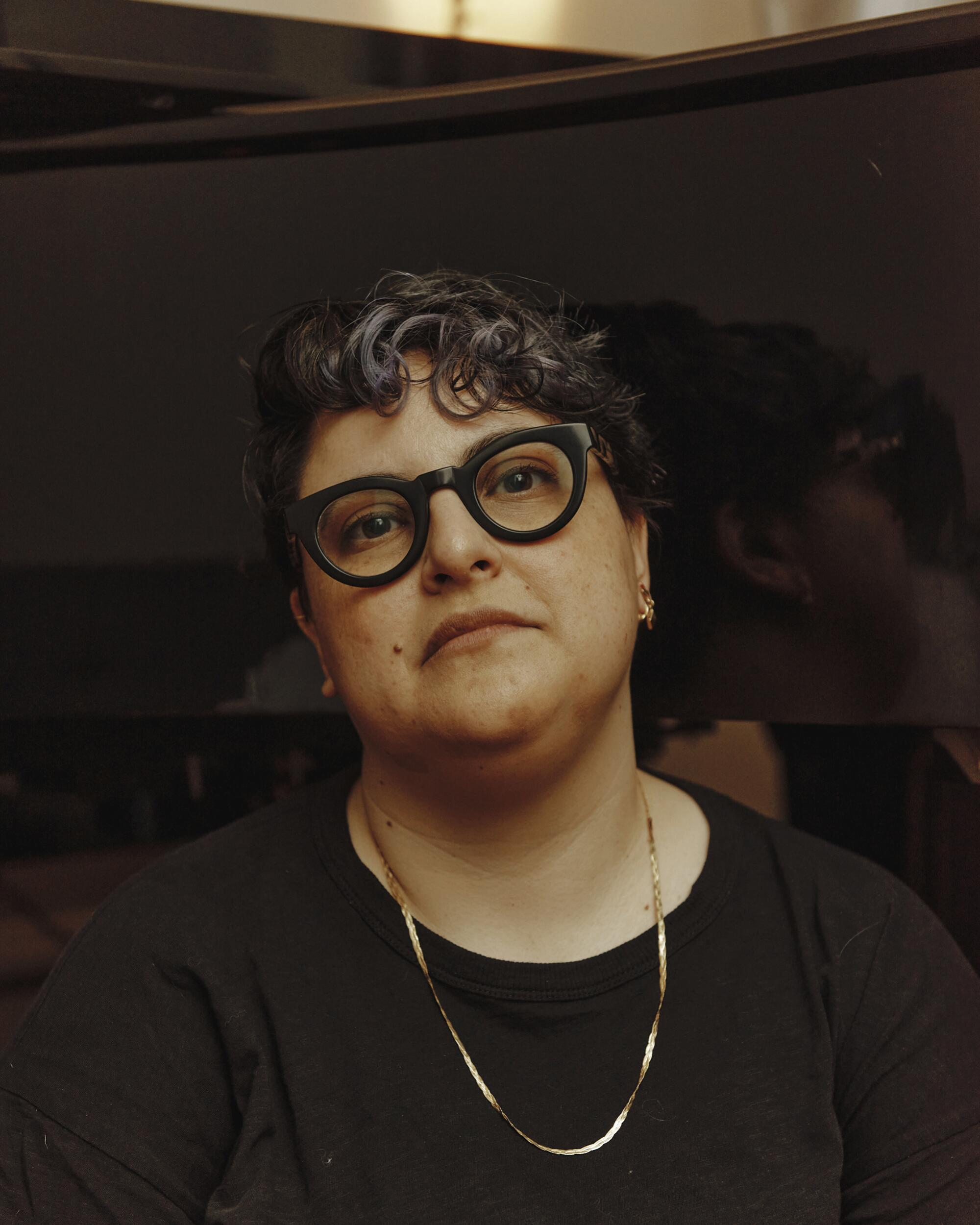
‘My gender was always a performance’
L. Villegas was initially pushed toward opera over musical theater because, as her teachers at West L.A.’s Hamilton High School pointed out, “I wasn’t naturally the thinnest girl.” Her weight often fluctuated throughout her years in Chicago’s regional productions and New York’s developmental rooms.
“I was so busy hating my body in such a specifically gendered way that I didn’t even know I could hate my body for a totally different reason,” she recalls. Just before the pandemic, the 35-year-old responded to a Craigslist ad from a famed florist in Providence, R.I., and has since bloomed into her truer self as a floral designer.
“Part of being in theater is putting on costumes and wigs, no matter how silly you feel,” she says. “I didn’t realize until after a year or so of not going on chorus call auditions that I was also doing that in my everyday life, presenting myself a certain way in order to have a job.
“I’ve since stopped presenting femme and realized that, deep down, my gender was always a performance,” adds Villegas. “I’m now a version I would never know existed if I were still working in a narrow-minded image-obsessed industry, and I’m much happier than I ever was doing theater.”

‘For me, theater can’t be forever’
Because Melinda Sewak long believed that science and the arts were mutually exclusive pursuits, she dropped out of medical school to perform all over Nashville’s regional scene. But just before the pandemic, a difficult pregnancy pushed her to reconsider her career choices.
“I was preparing for a reading when I got our diagnosis and had to cancel the performance,” says Sewak, whose daughter has a rare spinal cord condition. “I realized that, for me, theater can’t be forever. Because what will I do in moments like this, when I just can’t be onstage?”
The 31-year-old joined the first data analytics cohort at Pivot Technology School, a boot camp designed by and for people of color to transition them into tech industries. She now works as a business analytics manager for Doximity, an online networking service for medical professionals, and still acts from her sound booth at home.
“Returning to in-person theater isn’t an option for me because my daughter is immunocompromised, so voiceover roles and audio book narration allow me to continue to tell stories safely,” she says. Plus, “I’m learning how to pursue both tech and acting at the same time, which is what I’ve always wanted to do but didn’t know I could.”
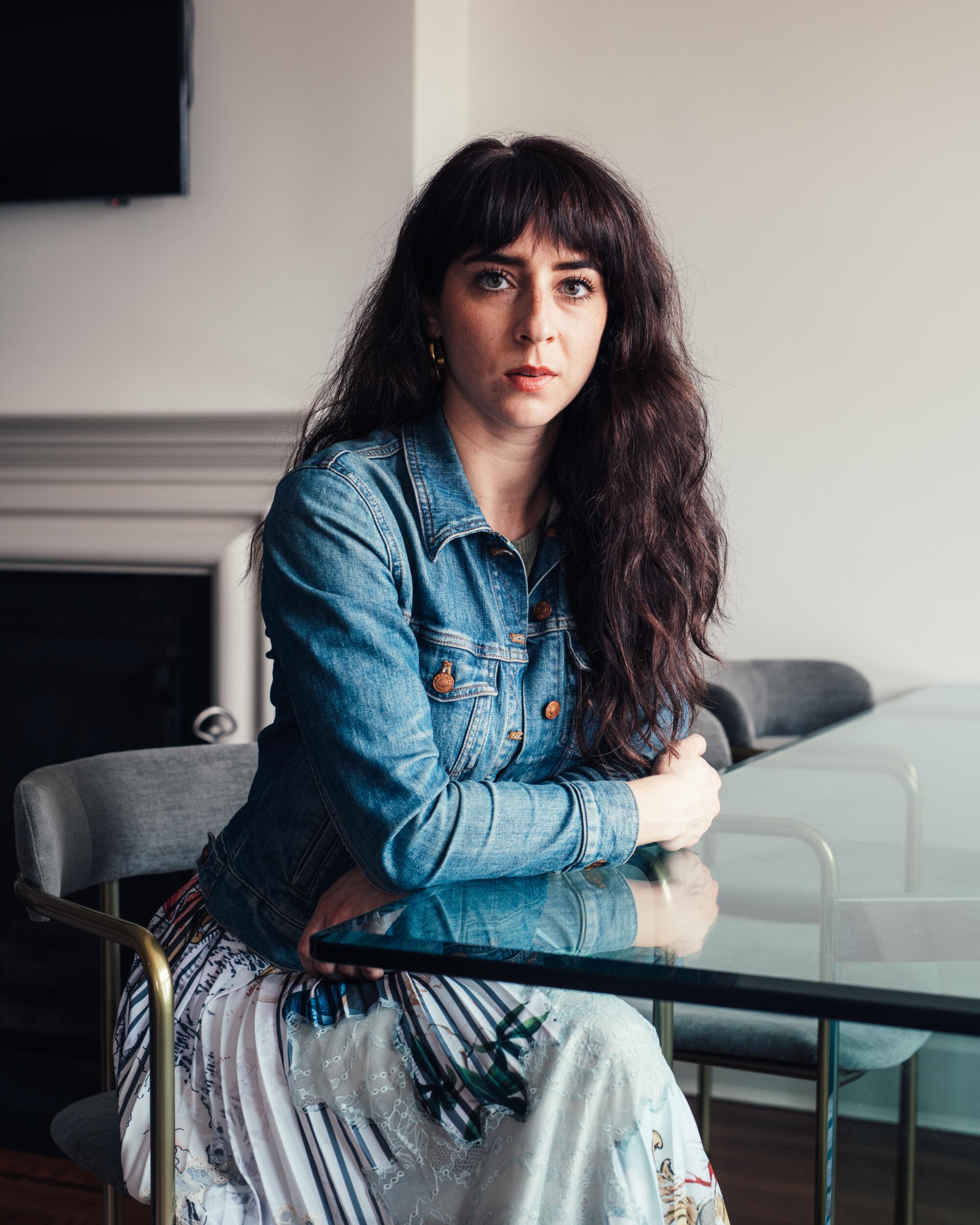
‘I still have the same end goal’
The Philadelphia-based actor Michaela Shuchman didn’t anticipate a career change upon nabbing a role in Delaware Shakespeare’s community tour, performing in nontraditional settings like correctional institutions, homeless shelters and psychiatric facilities. Soon after, she began teaching weekly classes at a juvenile detention center.
“We’d play acting games and read Shakespeare, and I’d ask them to be vulnerable in a place that wasn’t supporting them and, in fact, was punishing them,” she says. “I believe in the rehabilitative power of theater, but I started thinking: How can I have a bigger impact on the young people who don’t have the same access to it?”
When the pandemic wiped her slate of acting gigs, the 28-year-old enrolled in law school at New York University, focusing on juvenile justice and representing public school students at their suspension hearings. “I try to get their charges dropped and get them back in school by telling their stories and communicating with an audience effectively,” she explains.
“I still have the same end goal as when I was an actor on a stage; I’m still using all of those same skills,” she adds. “Right now, I’m so proud of the work I’m doing and I’m excited to see where it’ll lead me.”
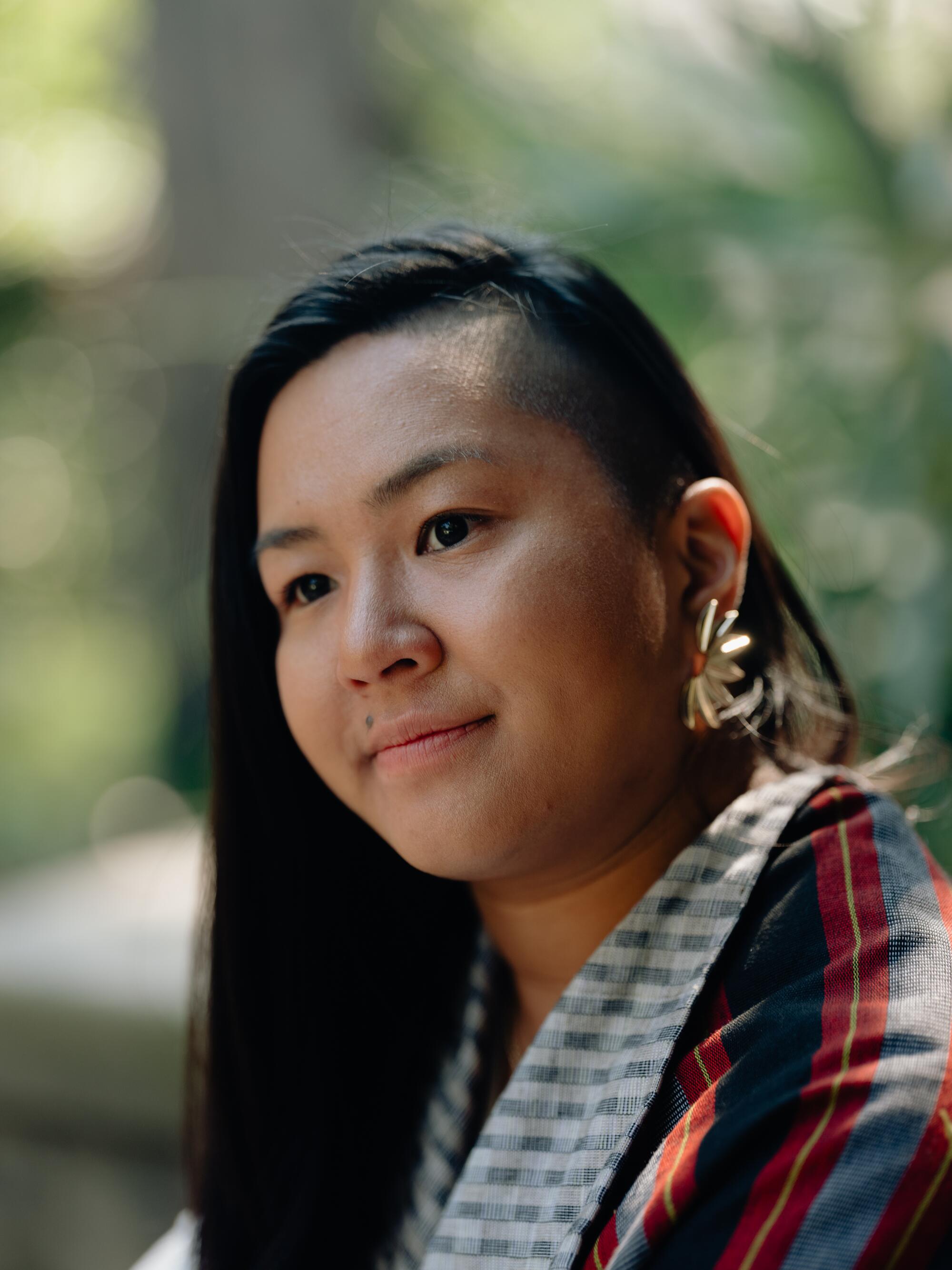
‘I’ll be a patron forever’
Jackie Ortiz juggled the marketing campaigns of an L.A. regional theater by managing social media accounts, sending email blasts and creating engaging videos. She didn’t realize how much she was doing until the pandemic’s collective pause and how much she had tolerated until months later, when the American theater experienced a racial reckoning.
“I had conflicting feelings about working there, like theaters wanted a pat on the back for their casting decisions when the board, designers and administrative staff would all still look homogenous,” says the Chicago-bred Ortiz. “Then I felt like I was thrust into approving the organization’s statement [on anti-racism] not only because of my role, but mostly because I was a brown woman and they wanted a stamp of approval from a person of color. It felt very performative, and I couldn’t keep overworking myself for a company that doesn’t align with my values.”
The 31-year-old now works as a community manager for the software company Doist. Resigning from regional theater “felt like a breakup, but I realized that my job position doesn’t define my relationship to the arts, and leaving the industry doesn’t make me any less passionate about it. I’ll be a patron forever, more intentional about which institutions my money supports.”
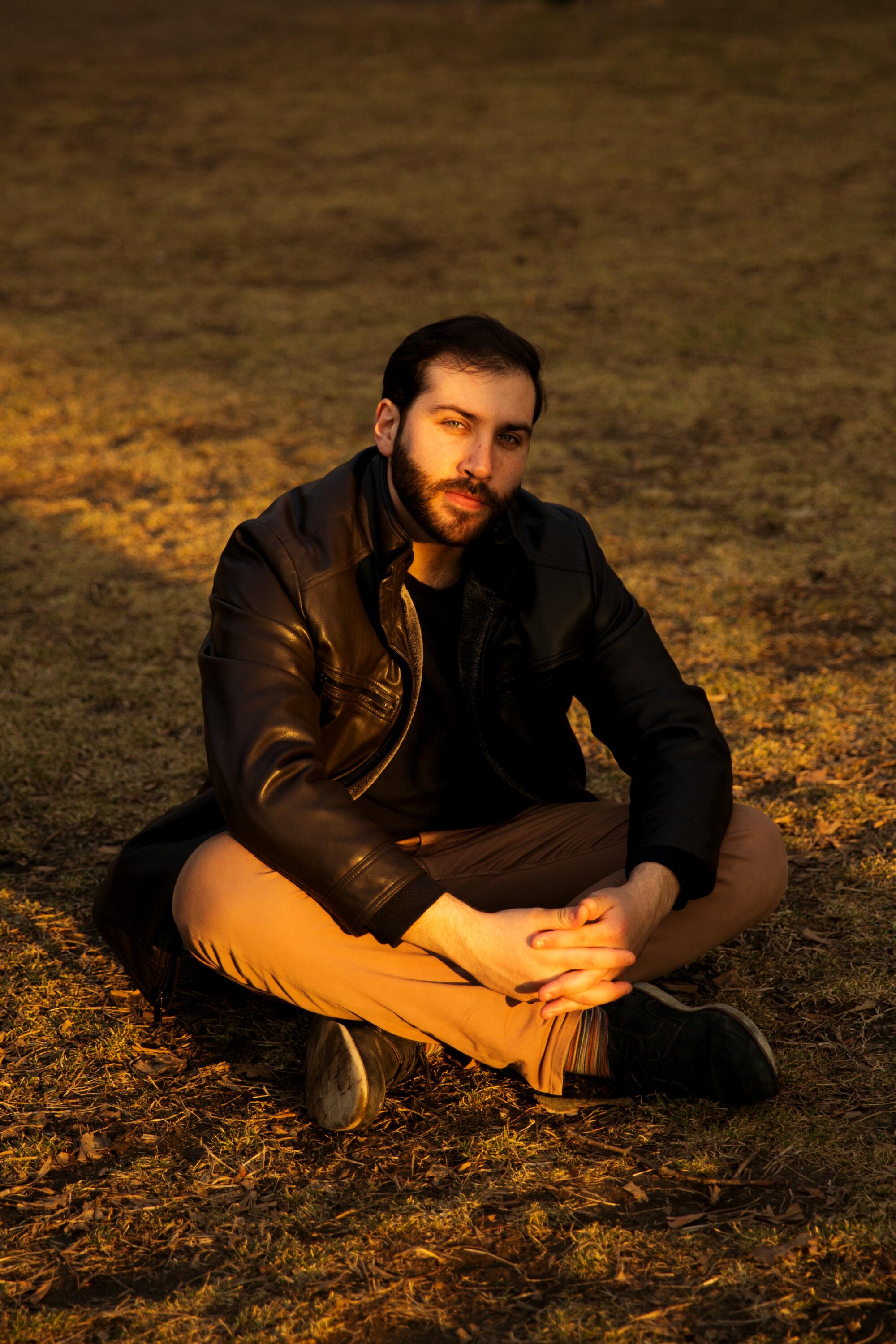
‘I’m more than happy to wait’
As a steady swing and understudy, Bennett Leeds filled in for other actors with little notice — or consideration. “I requested an extra rehearsal before I went on, which I thought was a reasonable accommodation when flying into a Broadway tour,” he says. “The general manager told me, ‘If you’re not ready — and it sounds like you’re not — I’ll find someone else who’s cool with being shot out of the cannon.’ Some might call that ‘paying your dues,’ but I took it as a threat of retaliation.”
The 25-year-old Leeds, bred in Connecticut, now works with members of a Jewish community center in Manhattan’s Upper West Side. “I get those person-to-person interactions that acting provided me,” he says. “Only now I work with supervisors who give me regular feedback and who I feel are invested in me as a person, which is something I never felt in theater.”
Leeds’ swivel from the stage may not be permanent. “I’m more than happy to wait until there’s an industry-wide change in the way arts employers treat their employees,” he says. “For a lot of people who come out of college programs, work outside the arts gets turned into this ‘other’ and that can put artists in certain situations. It turns out those desk jobs I avoided can be pretty fulfilling.”
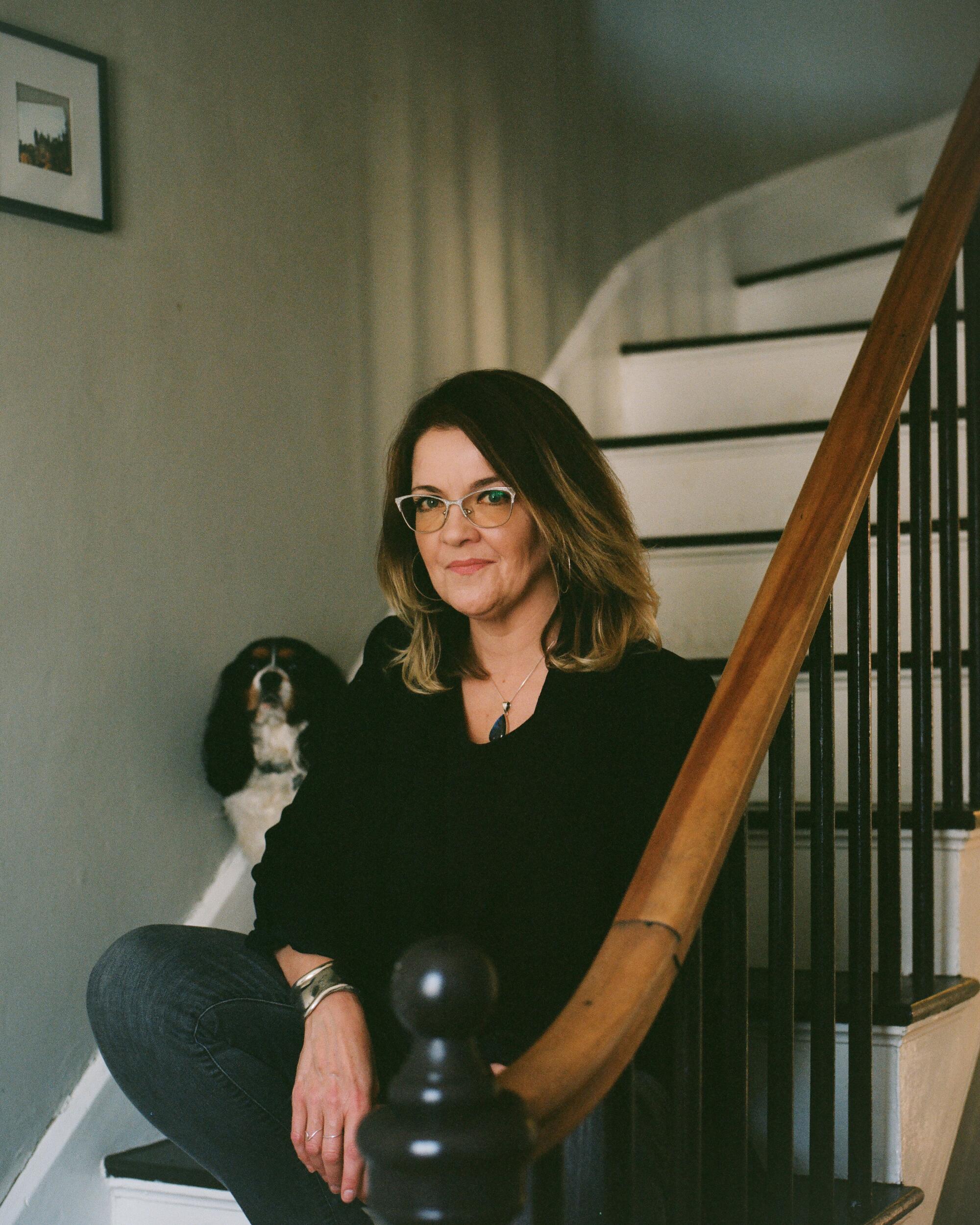
‘I feel more immediately helpful’
Prepandemic, Amy Roeder was an actor, theater educator and administrator who volunteered on a once-a-month municipal committee. “My whole life, I gave so much of my time and energy to my career in theater,” she says. “I thought, ‘I can take some of that energy and direct it towards calling my representatives and standing up for pieces of legislation I care about.’”
Once stages shuttered, the 48-year-old Bangor, Maine, resident went all in and ran for state representative — “We couldn’t knock on doors and meet people face to face, which is the bread and butter of any campaign, so we started sending handwritten cards to everyone,” she says — and won. A member of the labor and housing committee, she’s since helped pass a law curtailing the use of no-knock warrants and sponsored bills advocating for paid parental leave and more accessibility to emergency medicine.
“We all know about those studies about what attending theater does for a person’s well-being, but we as artists rarely get to see that tangible benefit in someone else’s life,” says Roeder, who still occasionally auditions for brief onscreen roles. “In the legislature, you pass a bill, you see the person that action affects, you see the difference that you made. I feel more immediately helpful.”
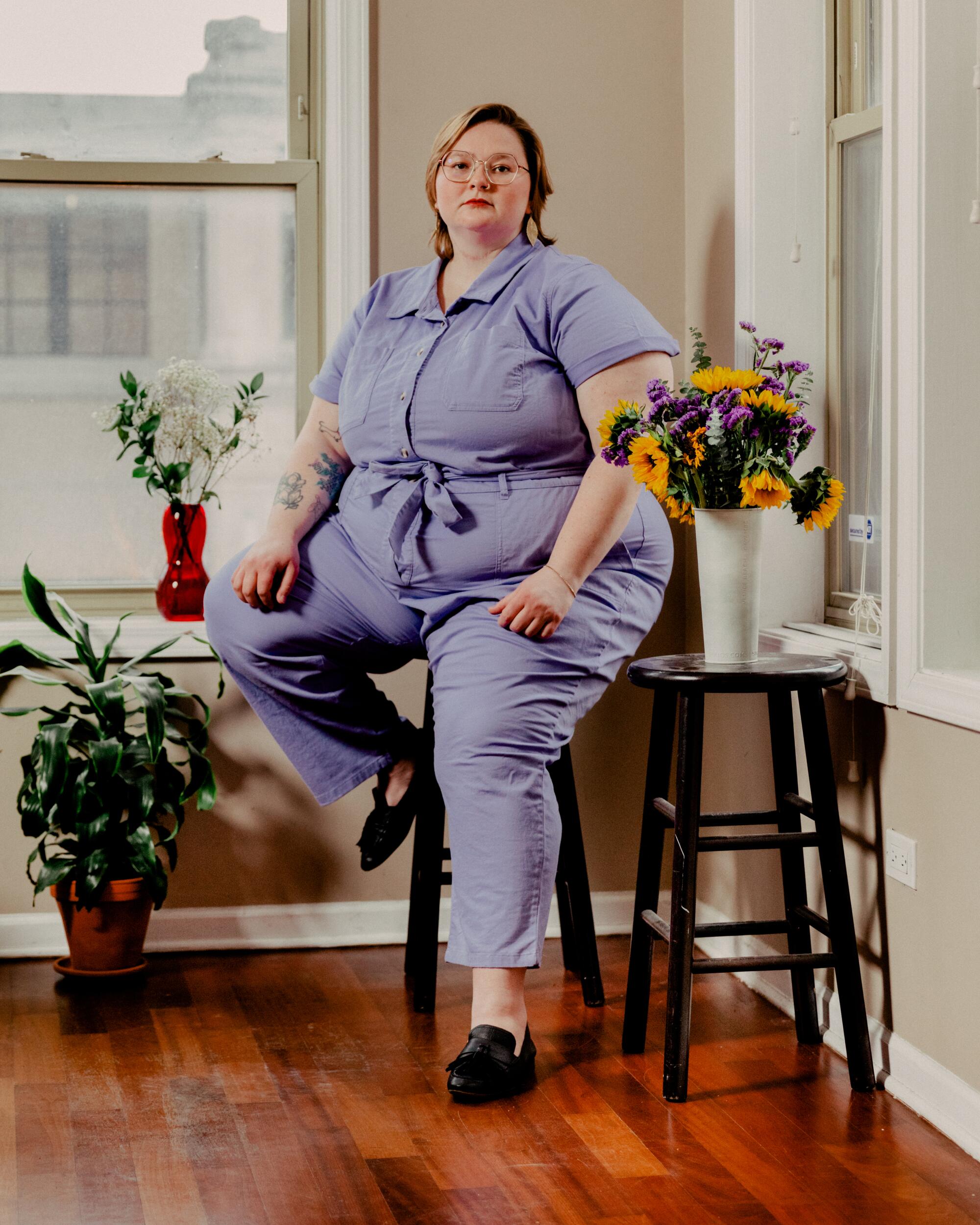
‘I’m finally getting paid my worth’
Margaret Baughman regularly worked numerous directing and stage management gigs to afford prepandemic New York City. “In the arts, you take the gig that doesn’t pay well so you can get the next one that maybe pays better,” they say. “But what happens is, one production isn’t enough to make rent, and theaters don’t always have the right cash flow to pay on time. So you end up taking on a bunch of freelance projects — on top of eight shows a week.”
Baughman had been following COVID in the news and, in case of a widespread shutdown, contacted a recruiter about a temporary remote position. Now 28, they’ve since moved back to Chicago and work as a program manager at TikTok — a full-time job with consistent paychecks, affordable health insurance and a semblance of work-life balance. Even the occasional 60-hour workweeks are less of a lift than their years in theater.
“Before the pandemic, I was so, so close to getting those Broadway credits,” they say. “But I was in parallel tracks with peers with significant financial privilege, who had so much more time to network and do workshops that didn’t pay. I decided it wasn’t worth it anymore, and now, I’m finally getting paid my worth.”
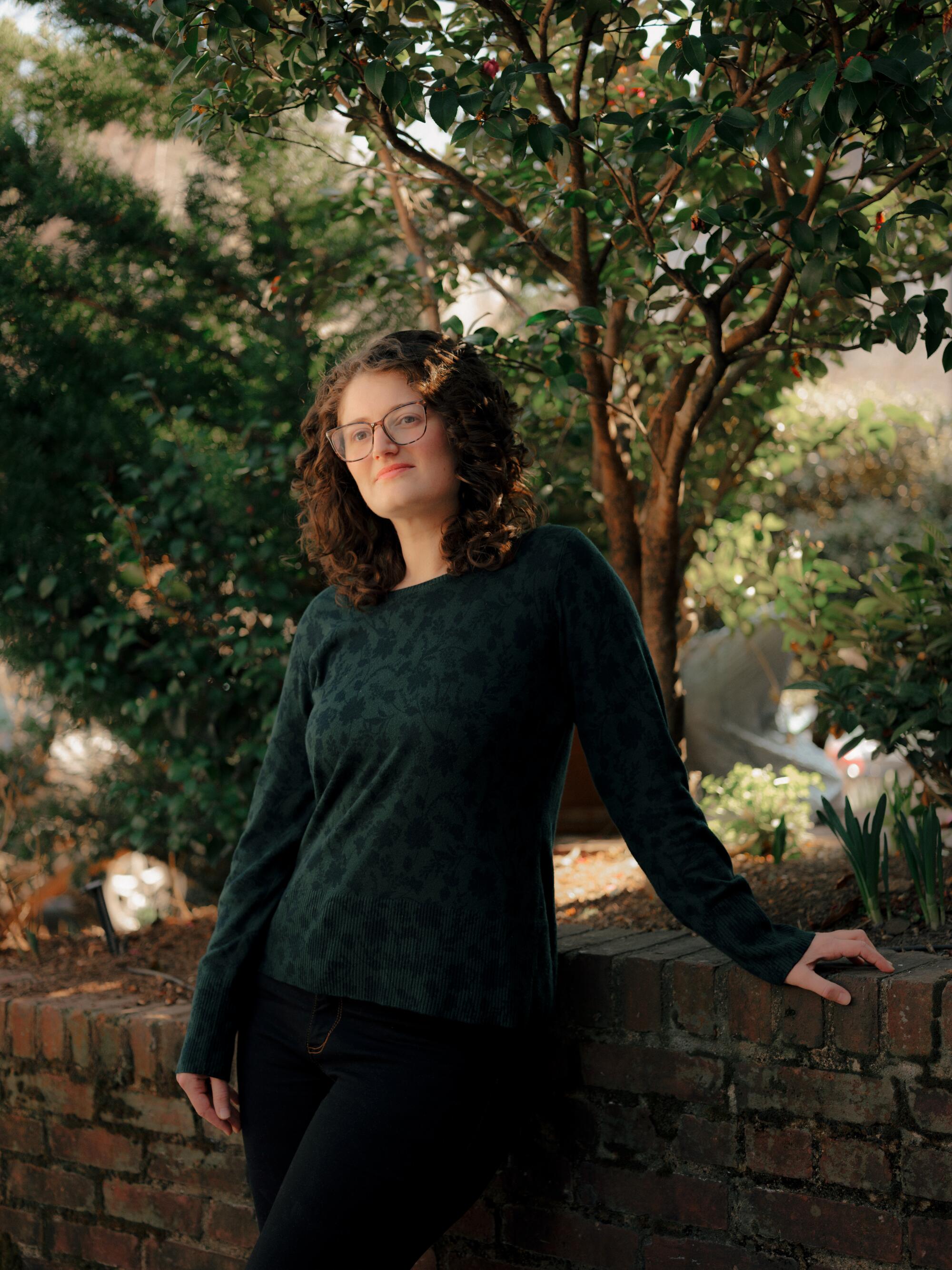
‘Our labor is often invisible’
As the associate literary director of Washington D.C.’s Studio Theatre for nine years, Lauren Halvorsen helped plan each season by evaluating hundreds of scripts. She also dramaturged plays, maintained playwright relationships, wrote grants, drafted marketing copy, moderated talkbacks and coached the box office through potential audience questions.
“This work is crucial for the longevity and health of an institution,” she says. “But because our labor is often invisible, our expertise is often misunderstood and not as valued as other specialties. Our positions just do not exist anymore; they’ve either been completely eliminated or turned into low-paying internships.”
After getting laid off early into the pandemic, the 36-year-old now handles accounting for an engineering company, “an entry-level job that pays more than what I made 15 years into my career.” The role leaves time for freelance teaching and dramaturgy, often working with the institutions she critiques in her well-read theater industry newsletter.
Though thankful for her current balance, Halvorsen wishes full-time arts positions paid sustainable wages. “Theater companies value buildings, donors and audiences, but not their arts workers,” she says. “If these institutions say they care about art, they have to care about the people who make that art over the people they sell it to.”

‘I wanted to make a more direct impact’
After a fellowship at Washington D.C.’s Arena Stage, Selene Betancourt had mixed feelings about her artistic director dreams. “It showed me what theater can do, and this activist career I could have of working on plays that tackle issues like tribal sovereignty and Japanese internment,” she recalls. “But being in D.C. at the time of Donald Trump and watching progressive rights get rolled back, it showed me what theater can’t do, which was frustrating.”
The Texas-raised director is now working toward her master’s degree in public policy at UCLA. “Looking at the public health crisis and the intense disparity that was magnified by COVID, I wanted to make a more direct impact in a way I don’t think I could’ve ever done with my art,” she says.
Betancourt, now 27 and also a Democratic delegate, regularly draws on her experience in theater. “I love collaborating in teams and growing an idea into a fully implemented project, and I still get to do that,” she says. Plus, “being a young woman and talking about politics, I still think about how to maintain authority and power without getting labeled as ‘pushy’ or ‘too much.’ Thankfully, I have plenty of experience with that from directing older male actors.”
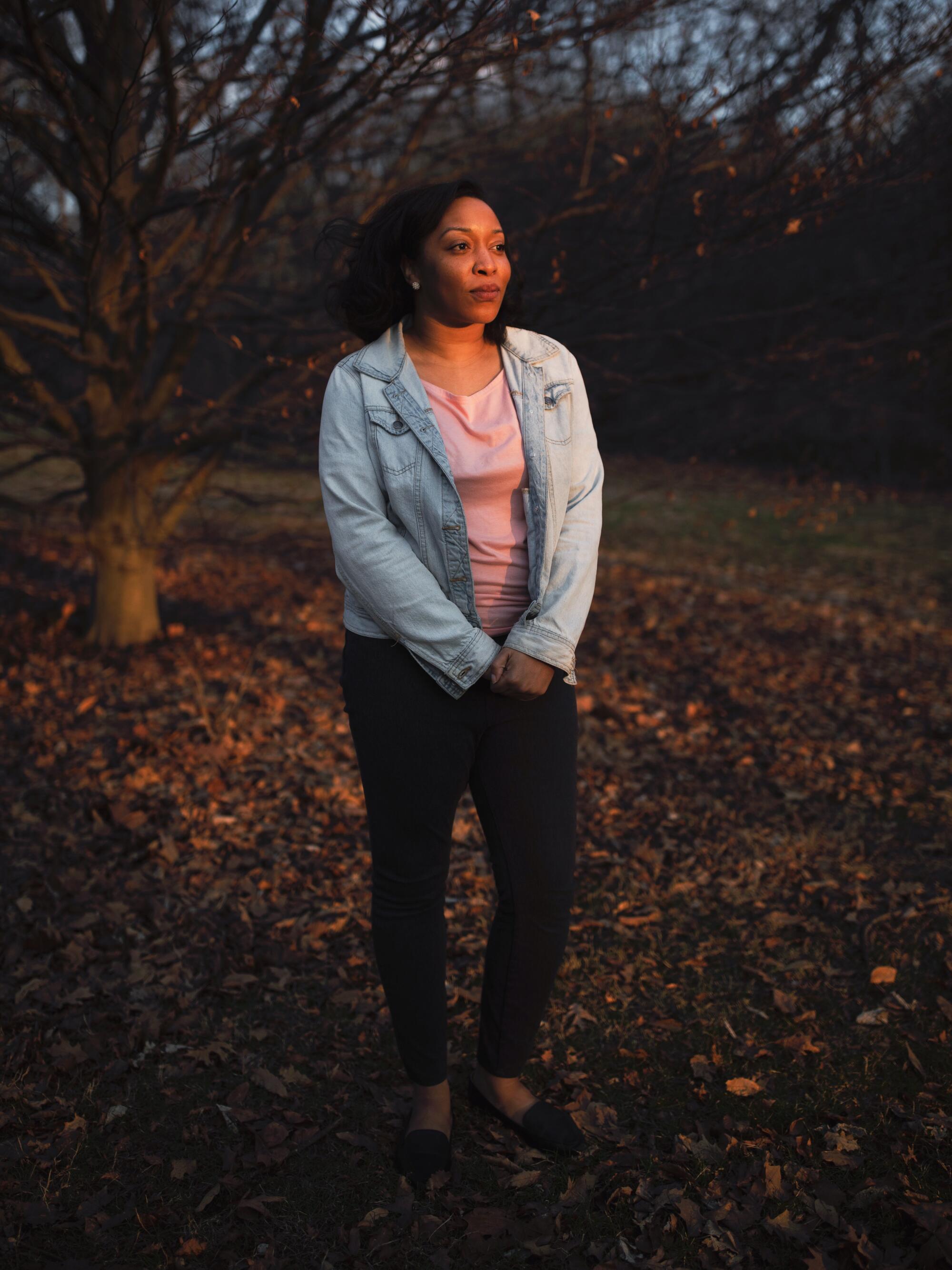
‘Your art will always be there’
Actor, choreographer, light board operator — Michelle Golden played every role in the theater while caring for her mother, who passed away from cancer in 2017. As a way to work through her grief, the Columbus, Ohio, thespian took a part-time position as a patient advocate, helping people navigate their complex insurance policies to get the healthcare they need.
“It’s been healing to help other people avoid the same pitfalls I went through,” she recalls. “A lot of the job is just making sure the T’s are crossed in a timely manner, or bothering the right person until they do what they’re supposed to already have done — which is basically what I did as a stage manager and director.”
Since the onset of the pandemic, the 34-year-old has been working full time in this role, due to the widespread need. But she hasn’t ruled out theater indefinitely. “Your art will always be there, there will always be a need for it,” she says. “And the time you spend in another field — talking to people from all walks of life, making connections in a different way — will only make your artistic vision more well-rounded and relatable to others.
“But I don’t have any doubt that this is what I’m supposed to be doing right now.”
More to Read
About this story
Photo editing and story design by Jacob Moscovitch. This project was edited by Paula Mejía and Laurie Ochoa. Copy editing by Marina Levario.
The biggest entertainment stories
Get our big stories about Hollywood, film, television, music, arts, culture and more right in your inbox as soon as they publish.
You may occasionally receive promotional content from the Los Angeles Times.











